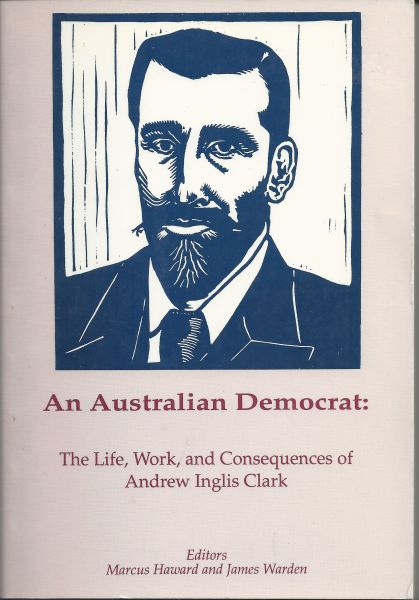Andrew Inglis Clark (24 February 1848 -14 November 1907) was an Australian Founding Father and the principal author of the Australian Constitution, he was also an engineer, barrister, politician, electoral reformer and jurist. He initially qualified as an engineer, however he re-trained as a barrister in order to effectively fight for social causes which deeply concerned him. After a long political career, mostly spent as Attorney-General, he was appointed a Senior Justice of the Supreme Court of Tasmania. Despite being acknowledged as the leading expert on the Australian Constitution, he was never appointed to the High Court of Australia.
He popularised the Hare-Clark voting system, and introduced it to Tasmania. In addition Clark was a prolific author, though most of his writings were never published, rather they were circulated privately.[1] Clark was also Vice-Chancellor of the University of Tasmania. Throughout his life, Clark was a progressive. He championed the rights of worker to organise through trades unions, universal suffrage (including women’s suffrage) and the rights to a fair trial – all issues which today we take for granted, but were so radical in the 1880s that he was described as a ‘communist’ by the Hobart Mercury.
Clark was an Australian Jefferson, who, like the great American Republican, fought for Australian independence; an autonomous judiciary; a wider franchise and lower property qualifications; fairer electoral boundaries; checks and balances between the judicature, legislature and executive; modern, liberal universities; and a Commonwealth that was federal, independent and based on natural rights.”
Clark made significant contributions to the Australian Constitution. Of the 96 sections of his draft
